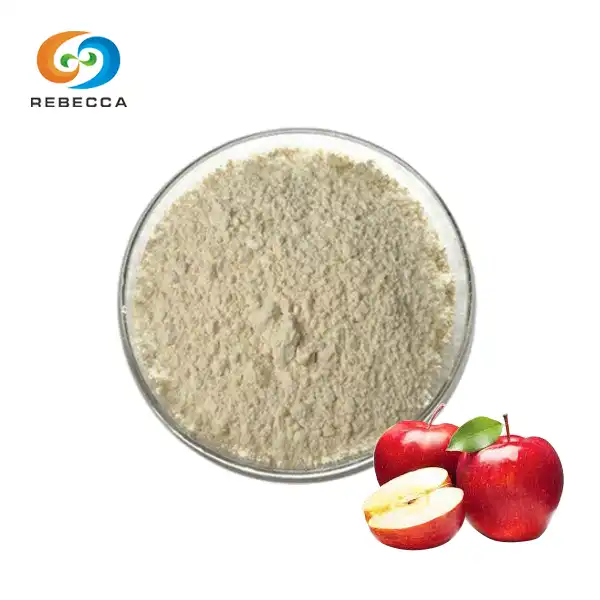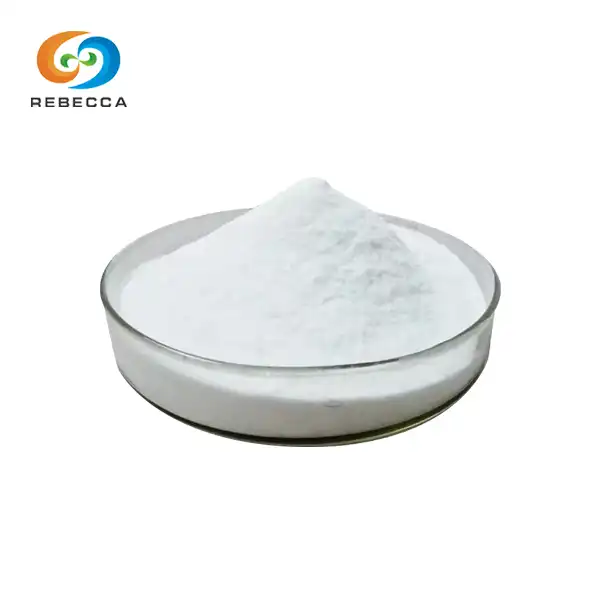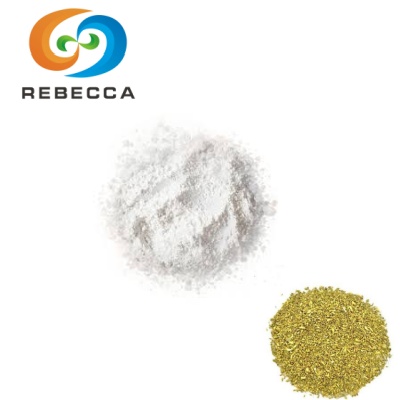Is it better to drink apple cider vinegar in the morning or at night?
The question of when to consume apple cider vinegar has sparked countless discussions among health enthusiasts, wellness coaches, and nutrition experts. Understanding the optimal timing for acv consumption requires us to consider how our bodies function throughout the day and how different biological processes might interact with this fermented liquid. Morning advocates argue for the energizing and metabolism-boosting effects of starting the day with vinegar, while evening supporters point to potential benefits for digestion and blood sugar management before sleep.

Product Name: Apple cider vinegar powder ,Organic Apple cider vinegar.
CAS No.: 85251-63-4
Specification:Apple cider vinegar powder 5% 8% 10%
Test Method: HPLC
Latin Name:Malus Pumila Mill.
Morning Consumption
The practice of consuming apple cider vinegar first thing in the morning has gained considerable popularity among health-conscious individuals, and for good reason. The human body undergoes significant physiological changes during the overnight fast, making the morning hours a potentially optimal time to introduce compounds that can influence metabolism, digestion, and energy levels throughout the day.
One of the most compelling arguments for morning apple cider vinegar consumption lies in its potential impact on metabolic function. After an extended period without food, the body's insulin sensitivity is typically at its highest, and blood glucose levels are naturally lower. Introducing acetic acid, the primary active component in apple cider vinegar, during this metabolic state may help maintain stable blood sugar levels as the day progresses and food intake resumes. Research has shown that acetic acid can improve insulin sensitivity and glucose uptake by cells, potentially setting a positive metabolic tone for the entire day.
The appetite-regulating effects of apple cider vinegar may be particularly pronounced when consumed in the morning. The acetic acid content can increase feelings of satiety and potentially reduce overall caloric intake throughout the day. This effect appears to work through multiple mechanisms, including delayed gastric emptying and increased production of satiety hormones. For individuals seeking weight management support, morning consumption may help establish better portion control and reduce the likelihood of overeating at subsequent meals.
Morning apple cider vinegar consumption may also support digestive health by stimulating the production of digestive enzymes and stomach acid. This priming effect can improve the body's ability to break down and absorb nutrients from breakfast and subsequent meals. The acidic nature of vinegar can help maintain optimal stomach pH levels, which is particularly beneficial for individuals who may have reduced stomach acid production due to age, stress, or certain medical conditions.

Evening Consumption
The case for evening apple cider vinegar consumption is built on a different set of physiological considerations, focusing primarily on digestion, sleep quality, and overnight metabolic processes. As the day winds down and the body prepares for rest and recovery, its introduction can potentially support several important biological functions that occur during sleep.
One of the most significant advantages of evening consumption relates to blood sugar management during the overnight hours. Research has demonstrated that consuming apple cider vinegar before bedtime can help moderate the dawn phenomenon, a natural rise in blood glucose that occurs in the early morning hours. This effect appears to be mediated by acetic acid's ability to slow gastric emptying and improve insulin sensitivity, helping to maintain more stable blood glucose levels throughout the night and into the following morning.
The digestive benefits of evening apple cider vinegar consumption may be particularly pronounced for individuals who consume their largest meal of the day in the evening. The acetic acid can help improve the digestion of complex carbohydrates and may reduce the glycemic impact of dinner, leading to better post-meal blood sugar control. This improved digestion may also reduce the likelihood of experiencing digestive discomfort that could interfere with sleep quality.
For individuals who struggle with nighttime cravings or late-night snacking, consuming apple cider vinegar in the evening may help curb appetite and reduce the desire for additional food before bedtime. The satiety-promoting effects of acetic acid can extend into the evening hours, helping to maintain caloric control and supporting weight management goals. This appetite suppression may be particularly beneficial for individuals who tend to consume excess calories in the evening due to stress, boredom, or habitual eating patterns.
The potential sleep-related benefits of evening apple cider vinegar consumption are less well-established but may be significant for some individuals. Stable blood sugar levels throughout the night can contribute to more restful sleep by reducing the likelihood of blood sugar fluctuations that might cause nighttime awakenings. Additionally, improved digestion may reduce physical discomfort that could interfere with sleep onset or quality.

Expert Tips for Either Timing
Regardless of whether you choose morning or evening consumption, certain principles and practices can help maximize the potential benefits of apple cider vinegar while minimizing risks and side effects. These expert-recommended strategies apply to both liquid vinegar and apple cider vinegar powder formulations, though specific application methods may vary between the two forms.
Gradual introduction represents another crucial strategy for successful apple cider vinegar integration. Beginning with smaller amounts and gradually increasing to the desired dose allows the digestive system to adapt to the increased acidity and helps identify any individual sensitivities or adverse reactions. This approach is particularly important for individuals with sensitive stomachs, those taking medications, or anyone new to regular vinegar consumption.
Quality considerations play a significant role in the effectiveness and safety of apple cider vinegar consumption. For liquid forms, choosing organic, unfiltered vinegar with the "mother" intact provides the broadest spectrum of beneficial compounds and enzymes. When selecting ACV powder, look for products that specify the concentration of active compounds and use standardized extraction methods to ensure consistent potency and quality.
Timing relative to meals requires careful consideration regardless of whether you choose morning or evening consumption. Taking acv on a completely empty stomach may cause irritation, while consuming it immediately with food may reduce its effectiveness for blood sugar management. Most experts recommend consuming vinegar 15-30 minutes before meals to optimize its effects on digestion and glucose metabolism while minimizing potential stomach irritation.
Rebecca: Apple Cider Vinegar Powder For Sale
As a specialized apple cider vinegar powder supplier, Rebecca Bio-Tech offers high-quality apple cider vinegar extract derived from Malus Pumila Mill., providing a convenient and standardized alternative to liquid vinegar. Our ACV powder is available in multiple concentrations, including 5%, 8%, and 10% specifications, allowing for precise dosing and flexible application across various health and wellness protocols.
Reach out to us at information@sxrebecca.com to discover how Rebecca Bio-Tech can support your health and wellness goals with our premium apple cider vinegar solutions.
References
1. Johnston, C. S., et al. (2004). Vinegar improves insulin sensitivity to a high-carbohydrate meal in subjects with insulin resistance or type 2 diabetes. Diabetes Care, 27(1), 281-282.
2. Ostman, E., et al. (2005). Vinegar supplementation lowers glucose and insulin responses and increases satiety after a bread meal in healthy subjects. European Journal of Clinical Nutrition, 59(9), 983-988.
3. White, A. M., & Johnston, C. S. (2007). Vinegar ingestion at bedtime moderates waking glucose concentrations in adults with well-controlled type 2 diabetes. Diabetes Care, 30(11), 2814-2815.
4. Kondo, T., et al. (2009). Vinegar intake reduces body weight, body fat mass, and serum triglyceride levels in obese Japanese subjects. Bioscience, Biotechnology, and Biochemistry, 73(8), 1837-1843.
5. Lim, J., et al. (2016). The effect of hemodialysis on the pharmacokinetics of acetic acid. Clinical Journal of the American Society of Nephrology, 11(11), 1982-1987.








